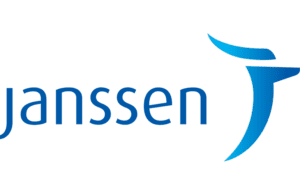 Drugs that work well in adults don’t always translate well for treating pediatric patients.
Drugs that work well in adults don’t always translate well for treating pediatric patients.
The problem has inspired clinicians such as the pediatric cardiologist Dr. Brian McCrindle at the Hospital for Sick Children in Toronto to work with the pharma industry on trials focused on pediatric patient populations and introduce newer agents to clinical practice. Traditionally, the process of selecting drugs for younger populations has been “somewhat imperfect and somewhat derived from experience in adult patients,” McCrindle said.
Most recently, McCrindle was the co-author of a preprint study published in the Journal of the American Heart Association investigating the use of rivaroxaban (Xarelto) from Janssen in patients who underwent a surgical procedure to correct a congenital heart defect.
Blood thinners such as rivaroxaban and aspirin — acetylsalicylic acid (ASA) — can reduce the risk of thrombosis and its potential to cause stroke or other devastating complications.
The Phase 3 UNIVERSE study found that rivaroxaban in an oral suspension formulation was comparable to treatment with aspirin. Additionally, rivaroxaban recipients had fewer blood clots and clinical events associated with blood clots than recipients of aspirin.
“My specific interest in the rivaroxaban study is that it’s one of a group of new anticoagulant agents that have some practice superiority,” McCrindle said.
Cardiologists have traditionally focused on using vitamin-K antagonists for anticoagulation. But such drugs, including warfarin, are problematic for pediatric age groups, given the potential drug-drug and drug-food interactions in younger patients. In addition, it is difficult to maintain the optimal therapeutic dose of such drugs in pediatric patients, requiring them to receive frequent blood monitoring. In addition, warfarin can have significant adverse effects in pediatric patients.
Launching a clinical trial for patients treated with the Fontan procedure, indicated in patients with a functional single ventricle in the heart, had certain challenges.
First, treating patients with a functional single ventricle itself remains challenging acutely and in the long term. “Single ventricle is definitely one of the more severe types of congenital heart disease that pediatric cardiologists would see,” McCrindle said.
Typically, there are two ventricles at the bottom of the heart. One pumps blood to the body while the other pumps to the lungs. When a patient has a single functional ventricle, the Fontan procedure can take advantage of the fact that the blood vessels flowing to the lungs are a “low resistance circuit,” McCrindle said. “You can take advantage of that and create a circulation whereby the ventricle that you do have, you dedicate to pumping blood to the body,” he said. Blood coming from the veins then flows passively into the lungs.
The single ventricle is rare, representing approximately 7.7% of congenital heart disease diagnosed in childhood, according to a 2002 assessment in Progress in Pediatric Cardiology. “We only enrolled patients in the immediate period after their Fontan operation, so this created a very limited pool of available subjects,” McCrindle said.
For that reason, the study required extensive collaboration between investigators across various medical centers.
Even still, the study was not powered to reliably detect the clinical superiority of rivaroxaban over aspirin. “Performing such a study would be next to impossible, given the low event rates and the rarity of the population, and how long you might have to observe them for before you got enough events,” McCrindle said.
The study could pave the way to expanded use of rivaroxaban in patients who have had the Fontan procedure, given its performance relative to aspirin in the study.
Having “some data is always better than no data,” McCrindle said. “And even though the results of the study are not statistically significant, I think the differences are clinically important.”
Filed Under: Cardiovascular, clinical trials, Drug Discovery



